What’s the Buzz
The Bee Healthy Blog
What You Need to Know About Depression Medication
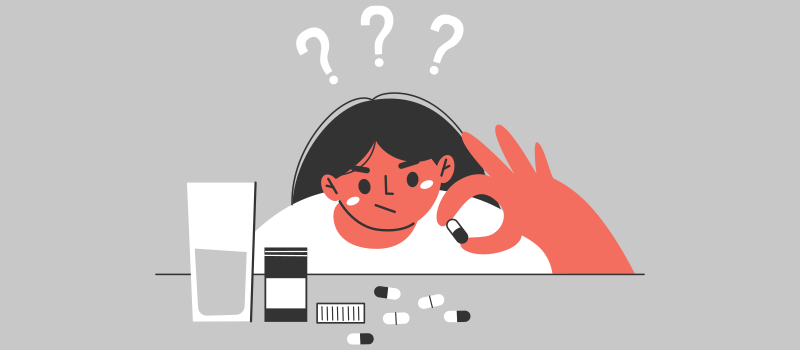
Major depressive disorder, commonly known as depression, is a mental illness that affects how you think, feel, and act. It can cause feelings of sadness, hopelessness, and lack of interest in previously enjoyable activities. Depression can also lead to physical symptoms that make it hard for you to function at home and work. Untreated depression can rob you of a fulfilling life and pose a suicide risk.
While depression is a serious mental health condition, fortunately, it is treatable. The symptoms of depression vary from person to person and range from mild to severe. Taking mental health medications to treat depression can help you feel more like yourself, especially if you combine it with counseling from a mental health professional. But if you have mild depression symptoms, lifestyle changes and counseling may be all that are needed. So, how to tell if you need antidepressant medicine?
Please continue reading to learn more about how depression is treated and when you might need depression medication.
How do antidepressant medications treat depression?
Scientists and doctors believe that antidepressants work by increasing the levels of certain chemicals in the brain. These chemicals, called neurotransmitters, include serotonin, norepinephrine, and dopamine. They are closely linked to emotions and mood. Neurotransmitters also affect pain signals. That is why some antidepressant medications are effective in relieving chronic pain.
Notably, while antidepressant medicines can effectively treat symptoms of depression, they do not address the underlying cause. That is why it is important to use antidepressant drugs in combination with talk therapy like cognitive-behavioral therapy. This can be delivered in an individual or group setting or as family therapy.
How do I know if antidepressants are right for me?
Experts say taking an antidepressant is helpful in people with moderate depression or severe depression. In such individuals, multiple medications have been found to relieve symptoms more effectively than placebos (dummy medicines). Roughly 50-65% of people who use medicines to treat depression see an improvement in their symptoms. In general, antidepressant medicine is not recommended for people with mild depression symptoms.
The decision to take or not take depression medication should be made with the help of a mental health professional. Mental health medications are prescription drugs (they are not available over the counter, and you will need a doctor’s order to obtain them). Talk to your doctor frankly about your symptoms. They will help you decide whether you need an oral antidepressant or only lifestyle changes and counseling.
If your doctor recommends taking antidepressants, know that this is not something to be ashamed about. Depression is a mental illness and not a weakness or character flaw. Most commonly prescribed medications do not change who you are. Instead, they help you feel more like yourself and get your life back to normal.
However, like all medicines, antidepressants can cause side effects. If this occurs, talk to your doctor about lowering the dose or trying a different medicine.
How long do you need to take antidepressants?
Antidepressant medications can effectively relieve depression symptoms. This might tempt you to stop taking an antidepressant as soon as you start feeling better. However, the symptoms of depression can come back if you quit treatment too soon. Doctors recommend staying on an antidepressant medicine for at least 6-9 months before considering discontinuation.
While the thought of taking mental health medications for a long time can be overwhelming, you should know that many people can stop taking antidepressant drugs after a few months.
Talk to your doctor if you want to try and come off antidepressant medications. Never stop taking these medicines abruptly (don’t quit cold turkey). Doing so can lead to antidepressant discontinuation syndrome. You might experience withdrawal symptoms like lethargy, fatigue, nausea, vomiting, dizziness, headache, sweating, trouble sleeping, vivid dreams, and other symptoms.
What depression medication is best for me?
No one medication is best to treat anxiety disorders and depression. The first medicine you try might not work for you. It is a trial and error process. Meaning, you might have to try more than one medication before you find the one that works for you and causes the fewest side effects.
Remember that most antidepressants take time to become effective. Don’t be disheartened if you don’t feel better in the first few weeks after starting treatment. It takes 1-3 weeks for most antidepressants, including newer antidepressants, to relieve major depression. It may be 6-8 weeks before you see a noticeable improvement in your symptoms of depression.
Also, keep in mind that depression treated only by taking an antidepressant is more likely to return than combination treatment with antidepressants and counseling.
What will antidepressants do to a “normal” person?
Taking an antidepressant when you are depressed helps you feel more relaxed and upbeat. It allows you to return to your previous level of functioning. However, if a person who is not depressed takes antidepressant medication, the drug will not affect their mood or functioning. In other words, antidepressants are not happy pills. They do not cause euphoria in healthy individuals.
Do antidepressants cause weight gain?
Certain antidepressants can cause weight gain as a side effect. However, each individual has a different reaction to taking antidepressants. Some people might gain weight while others will not. You can reduce the risk of weight gain while taking antidepressants by leading a healthy lifestyle (eat healthy foods and get regular exercise).
What is the safest antidepressant with the least side effects?
As noted, each person reacts differently to antidepressants. One drug may be very effective for one person but offer no depression relief in another person. One person may experience severe side effects on a particular drug, while another person may tolerate it without problems.
Keep in mind that drinking alcohol while taking antidepressants is generally not advisable because sometimes depression worsens when you drink alcohol. Also, drinking alcohol or using recreational drugs can make the side effects of antidepressants worse.
Note that in a small number of people, especially teenagers and young adults, taking antidepressants can be associated with an increased risk of suicidal thoughts. The risk of suicide is higher in those with other mental health problems and those on treatment with other medications.
Here is a brief overview of the different types of antidepressants doctors use to treat depression. If you and your doctor decide to start a depression medication, it will likely be from one of these groups of medicines.
Selective Serotonin Reuptake Inhibitors (SSRIs)
Selective serotonin reuptake inhibitors or SSRIs are the most commonly prescribed medications for depression. They are also used to treat anxiety disorders and seasonal affective disorder. These antidepressants tend to cause fewer side effects than some of the other medications used to treat depression. Drugs like fluoxetine (Prozac), paroxetine (Paxil), sertraline (Zoloft), citalopram (Celexa), and escitalopram (Lexapro) are SNRIs.
Serotonin Norepinephrine Reuptake Inhibitors (SNRIs)
SNRIs are similar to SSRIs. Some people have a better response to SSRIs and others to SNRIs. Examples of SNRIs include duloxetine (Cymbalta) and venlafaxine (Effexor).
Noradrenergic and Specific Serotonergic Antidepressants (NASSAs)
This group of antidepressant medications is sometimes effective in people who do not respond to more commonly prescribed medications like SSRIs. NASSAs cause many of the same side effects as SSRIs. However, the sexual side effects tend to be fewer with NASSAs. An example of this type of drug is mirtazapine (Remeron).
Tricyclic antidepressants (TCAs)
Tricyclic antidepressants are older medications. They are less commonly prescribed these days because an overdose can be dangerous. Also, the side effects of tricyclic antidepressants tend to be worse than newer antidepressants. However, tricyclic antidepressants may be recommended in some people with treatment-resistant depression or mental health conditions like obsessive-compulsive disorder (OCD) or bipolar disorder. Amitriptyline (Elavil), nortriptyline (Pamelor), and imipramine (Tofranil) are TCAs.
Monoamine Oxidase Inhibitors (MAOIs)
Monoamine oxidase inhibitors are older antidepressants that are rarely prescribed nowadays. This is because they can cause serious side effects. Examples include isocarboxazid (Marplan), tranylcypromine (Parnate), selegiline (Emsam), and phenelzine (Nardil).
Atypical Antidepressants
Some other medications are approved by the U.S. Food and Drug Administration (FDA) as alternative treatments for people with depression. They are different from other antidepressants and are therefore called atypical antidepressants. However, they work similarly for treating depression, i.e., they affect levels of neurotransmitters in the brain. Examples of atypical antidepressants include bupropion (Wellbutrin), trazodone, nefazodone, and vilazodone (Viibryd).
One of the newer antidepressants on the market is called esketamine (Spravato). It has been approved by the U.S. Food and Drug Administration for treatment-resistant depression. This medicine is a nasal spray and is used in combination with an oral antidepressant.
References:

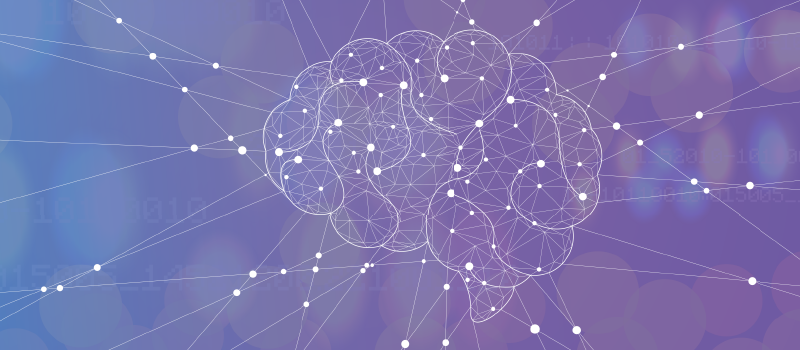
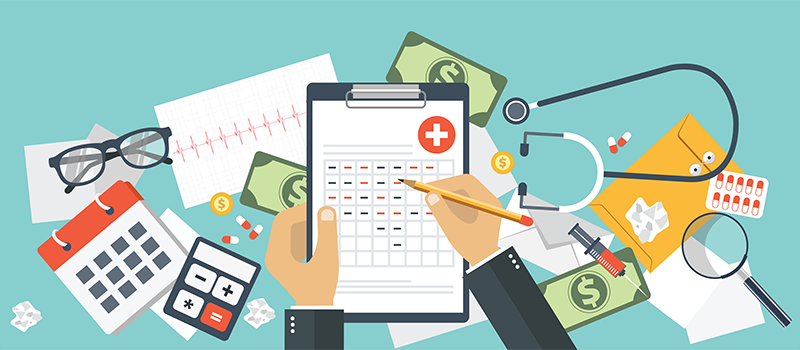
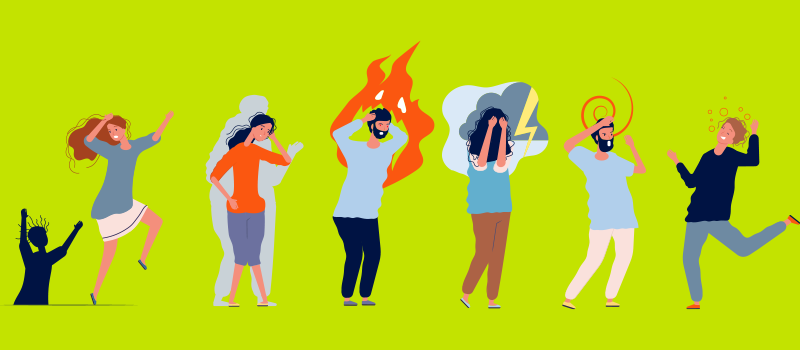
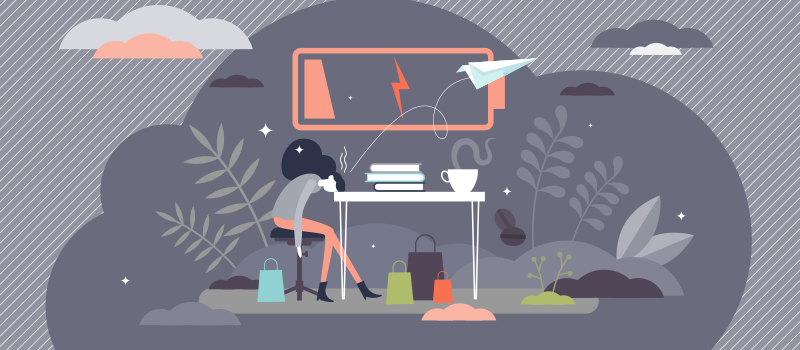
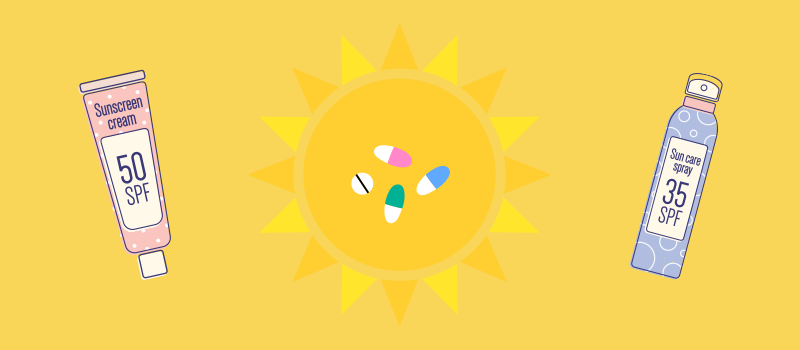
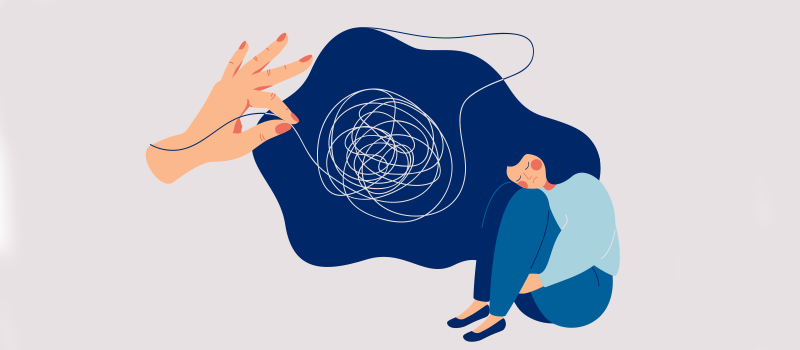
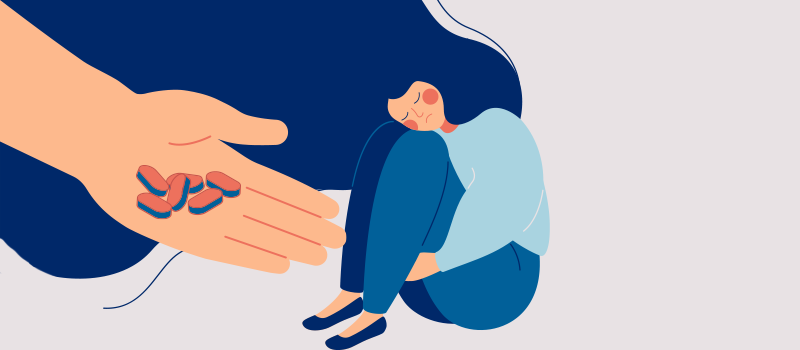

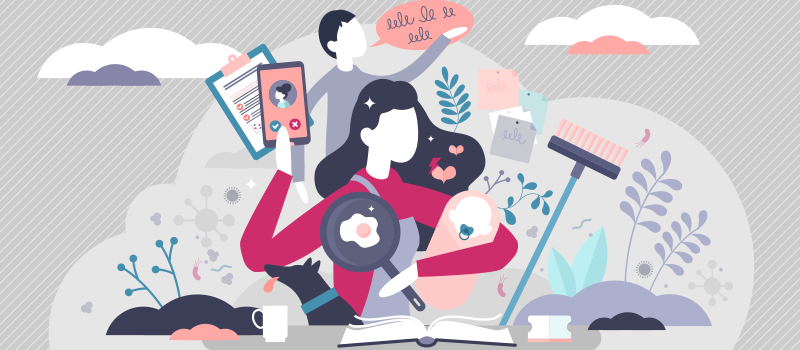


SOCIAL